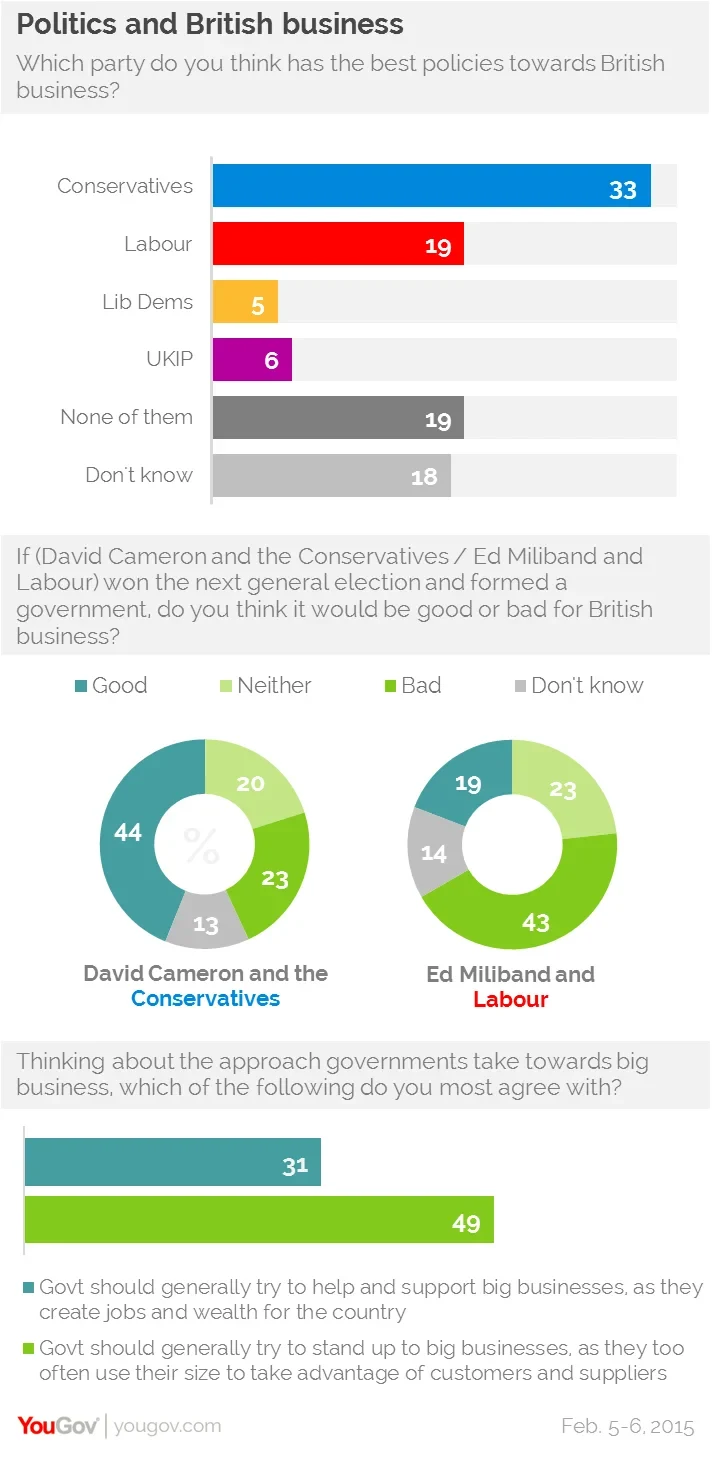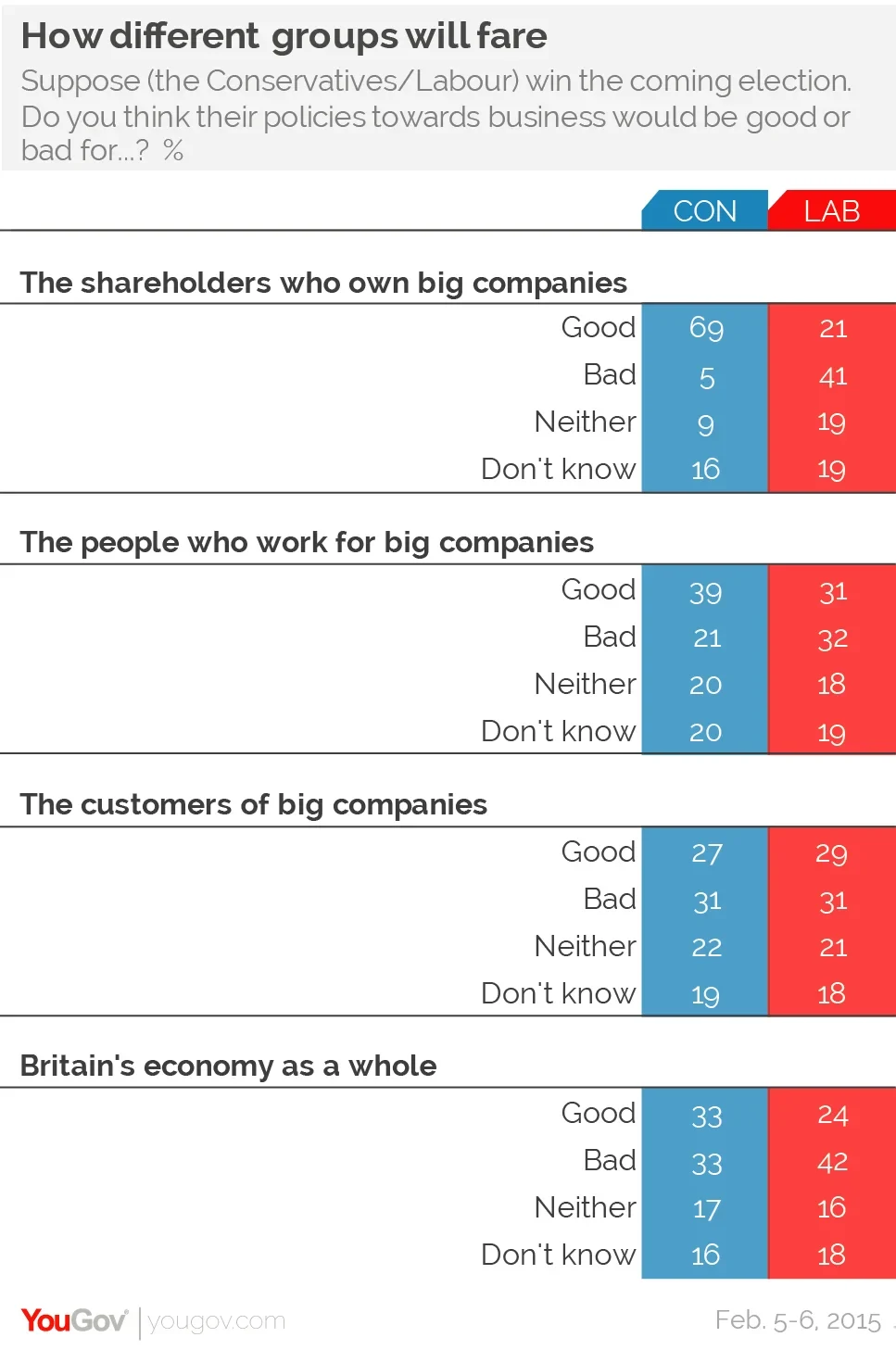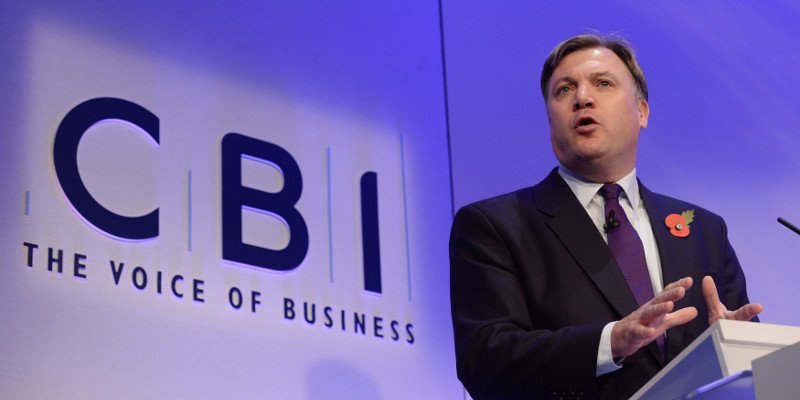To roll out specific business-friendly policies between now and May won’t be enough for Labour – the party has to shift the mind-set of the business community
Seldom has there been a more savage demonstration of the old truth that, when it comes to elections, perception matters more than reality.
By any objective standard, Labour has some big policies that many business leaders should like. A government led by Ed Miliband would keep Britain in the European Union, make only modest changes to our immigration rules and invest more in Britain’s infrastructure. In contrast, those policies that are unpopular with business leaders are second-order irritants: the mansion tax, a return to a 50p top tax rate, and a temporary freeze on energy prices.
Moreover, business leaders, and bankers above all, are unpopular with millions of voters. A landslide victory beckons for any party that can persuade voters that it understands business and would curb its excesses, yet at the same time work with well-run companies to build a fairer and more prosperous Britain.
Miliband, together with Ed Balls, shadow chancellor, and Chuka Umunna, shadow business secretary, say that this describes Labour’s strategy exactly. The trouble is, voters don’t believe them. Like business leaders, they judge that Labour has moved to the Left, and that leading Labour politicians don’t really mean it when they say they are pro-business. YouGov’s latest Sunday Times poll illustrates the party’s problem:

As those figures show, there is widespread support for standing up to big business; yet the party that promises to do just that is still seen as lagging the Conservatives on having the best policies towards British business.
Of course, some people on the Left argue that the way to higher living standards is to fight business as part of a strategy to cripple capitalism, or at least make sweeping changes to the way it works. Last week, a YouGov poll for the Times indicates that this view is unlikely to help Labour win power:

That the Tories are ahead in favouring shareholders comes as no surprise. But it is terrible news for Labour to fare worse on doing well by workers, and no better than level-pegging on serving the interests of customers. Those figures explain why Labour scores so badly on having business policies that are good for the economy as a whole. We would like many business leaders taken down a peg or three, but fear that the emotional satisfaction of doing so would be outweighed by the damage that would be done to our jobs and living standards.
As for the views of business leaders, one of the notable things of recent days, starting with the attack on Labour by Stefano Pessina, the CEO of the company that owns Boots the chemists, is that their criticisms of Labour tend to be unspecific. They dislike Labour’s ‘rhetoric’ and its general stance. Indeed the only specific policy that Mr Pessinia attacked was the risk of withdrawal from the EU – a Tory, not Labour, policy.
Labour politicians point this out, arguing that much of the business community’s fear of a Miliband victory is misplaced. In fact, this combination of vagueness and ferocity is the worst possible news for Labour. It suggests that to roll out specific business-friendly policies between now and May won’t be enough. Labour has to shift the mind-set of the business community. This is something that takes months and possibly years. It can’t be done in a few weeks.
All Labour can do is try to shift some waverers, in both the business community and the electorate as a whole, who are doubtful of the party but not totally against it. What does this mean? Here is one suggestion. Miliband, Balls and Umunna should give a compelling answer to this question: if there is a young, British version of Bill Gates or Steve Jobs out there today, with potentially world-beating ideas, how would a Labour government help them to build big, profitable companies that stay in Britain?
PA image









